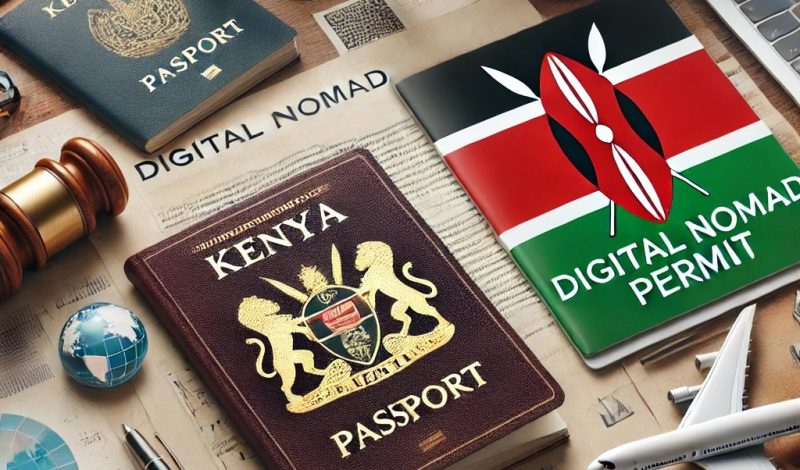On 1st October, 2024 the Cabinet Secretary for Interior and National Administration gazetted the Kenya Citizenship and Immigration (Amendment) Regulations, 2024. The amendment introduces a new type of permit, Class N, “the Digital Nomad Permit.” This is in addition to the existing permits prescribed under the Regulations.
The Digital Nomad permit is available to “a person who has been offered employment by a company based outside the country but works remotely from Kenya, or a freelancer remotely working from Kenya for a company based outside the country.” It is a response to the changing employment landscape occasioned by the Covid-19 pandemic which reshaped the employer-employee engagement as many individuals and organizations resorted to the use of on-line working styles away from the brick and mortar.
But new opportunities also emerged. Companies begun to, actively engage employees outside their jurisdiction allowing them to work from their country of resident without having to travel to their employer’s country of resident. Foreigners desiring to stay in Kenya while working under such arrangements are therefore the target of this permit.
Employment permit in Kenya
Persons desiring to work in Kenya are entitled to apply for Class D permit, the Employment Permit. This permit is issued to a person who is offered specific employment by a specific employer. They are required to prove that they are in possession of skills or qualifications not readily available in Kenya and whose engagement will benefit Kenya. The permit is limited to foreigners working for Kenyan employers, including the Government and it, therefore enables such employees to regularize their immigration status in the country during their period of working.
Requirements for issuance of Digital Nomad Permit
Persons desiring to apply for this type of permit are required to; (i) possess a valid passport, (ii) show proof of remote work, (iii) have an assured Annual Income of $55,000 USD derived from sources outside Kenya (iv) show proof of accommodation arrangement in Kenya, (v) have proof of clean Criminal Record from the country of the habitual residence.
The proof of income set at $ 55,000 annually is to ensure that the holder is not placed in a pecuniary embarrassing situation and is able to afford other aspects of their well being including medical insurance. It appears that an assumption is made that persons working would have other responsibilities such as family hence the justification for the minimum income requirement which is twice the annual amount of $ 24000 USD required for persons applying for Ordinary permit (Class K permit), that is issued to persons of “not less that thirty-five years of age; and has in his own right and at his full and free disposition an assured annual income of not less than $ 24000 USD per year that is derived from sources such as pension or annuity.”
Applicants for Digital Nomad permit must also undertake not to accept employment paid or unpaid in Kenya or engage in any income generating activities of any kind in Kenya for employer/company domiciled in Kenya. Otherwise, they would be required to apply for the class D permit if the engagement is with respect to employment, or any other type of permit as may be appropriate depending on the nature of economic activity that they desire to engage in.
Additionally, they must show that their presence in Kenya will be of benefit to Kenya. It is not clear how this will be ascertained. This requirement appears to be subjective and its application in practice remains to be seen.
Conclusion
With the introduction of the Digital Nomad permit, foreigners desiring to reside in Kenya as they work remotely for companies outside Kenya may now use this permit to anchor their stay in the country. The permit aligns itself with the changing employment landscape as it accords persons an opportunity to legally reside in Kenya while deriving income from employment outside Kenya. As we await the finer details on the application and issuance process, interested applicants should in the meantime begin to consider this avenue as one available for residency.

Cyril Kubai
Partner, Dispute Resolution
11th October 2024







